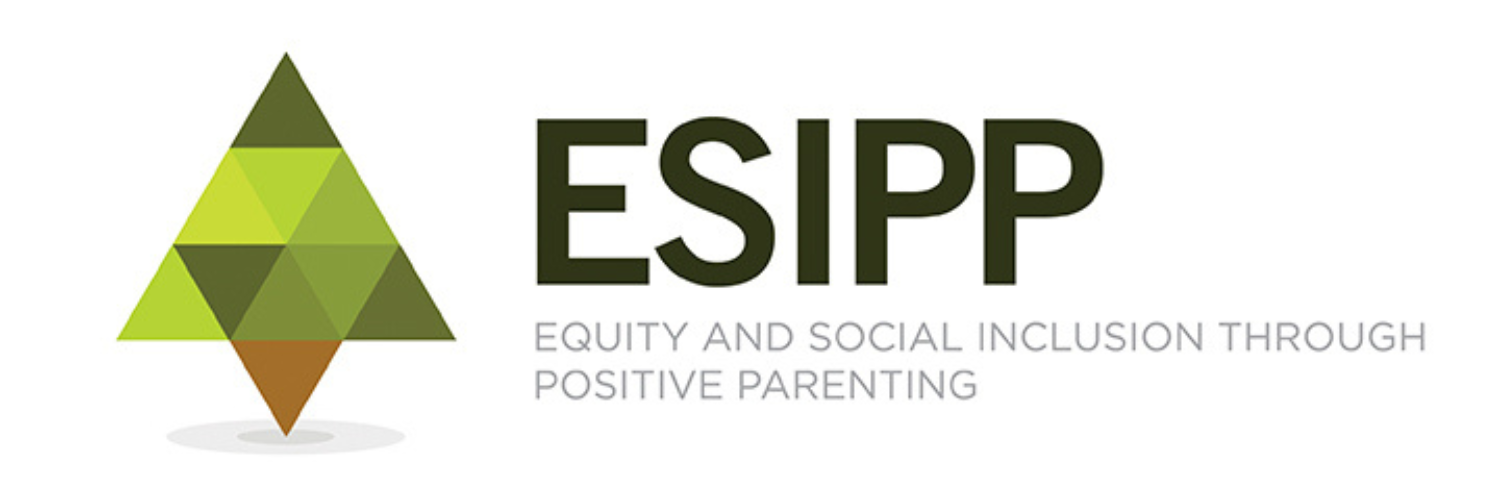
The Equality and Social Inclusion Positive Parenting (ESIPP) project focused on offering educating and training for parents of children on the autism spectrum. Running from September 2015 to August 2018, the project was funded by the European Commission’s Erasmus + Programme.
Autism is a lifelong condition which affects about 1% of the population (or approximately 7.5 millions European citizens) as well as those who live with them and care for them. The presence of autism can be extremely challenging to parents and other family members, and autism has been identified as causing greater family and parental stress than any other disability.
Teaching parents to understand the condition, and to work effectively with schools and other professionals, has been shown to be effective in improving outcomes for individuals with autism and their families.
The purpose of this project was to share, adapt, test, evaluate, embed and disseminate a collaborative model of parent education, with an ecologically valid curriculum and training materials, to support the provision of effective parent education for parents of disabled children (in this case, autistic children), learning from what is currently taking place in Croatia, Cyprus and the North Macedonia, and modeled upon existing practice within the United Kingdom.
Indeed, the project intended to adapt its educational tools to different countries of the European Union with the aim to provide parenting education and training for families of autistic children in regions where this type of support does not exist or is not yet accessible. After the project’s model and tools were evaluated, they were shared with all interested parties. During this phase of the project, policy recommendations were also made to political decision-makers.
The project brought together academics, professionals and autistic people’s families from various universities and autism organisations across Europe. Those involved came from various backgrounds – both national and cultural – and had a wide set of skills.
The project coordinator, the University of Northampton (United Kingdom) worked closely with the other partners: Autism Concern and Target Autism (United Kingdom), the University of Zagreb and the Centar za Autizam (Croatia), the European University Cyprus and the Autism Assessment Support Practice (Cyprus), the Macedonian Scientific Society for Autism (North Macedonia) and Autism-Europe (Belgium).
Impact of the ESIPP project
Between 2016 and 2018, the ESIPP project delivered at least 19 training sessions to 335 parents in 9 different cities in Croatia, North Macedonia and Cyprus. Moreover, 9 local trainers were trained in those countries in order to ensure the sustainability of the project after its lifespan.
Between 2017 and the beginning of 2018, a total of 450 parents, professionals, academics, students, decision-makers, journalists and other interested parties attended the 4 different ESIPP multiplier events held in Zagreb (Croatia), Northampton (United Kingdom), Skopje (North Macedonia) and Limassol (Cyprus), aiming at raising awareness about the importance of parent education in autism and sharing the work and expertise of the project partners to a wider audience.
Before each of these events, project partners held roundtable discussions with national, regional and local key stakeholders (such as representatives of the government, municipalities, NGOs, trade unions, universities, institutions for education and/or disabilities etc.), to discuss about the importance of sustaining the legacy of the ESIPP training after the project’s completion.
Policy recommendations
Improving the quality of life of people with autism and their families through parenting education: recommendations for policy-makers
Download the English version
Download the French version
Download the Croatian version
Download the Greek version
Download the Macedonian version
ESIPP Parent Education Programme
The ESIPP project had the core aim of developing and disseminating a programme of training for parents of children with autism living in south-eastern Europe. The Parent Education Programme (PEP), entitled “Positive approaches to autism”, consists of six modules.
The PEP promotes the use of positive strategies, and is based around the following topics: introduction to autism spectrum conditions, behaviour, the use of visual structure, sensory issues, communication challenges and the building of social skills. In addition, three non-core modules were added to meet requests for information on issues linked to puberty, sleeping and eating. This was created due to requests from parents on the initial feedback forms from the first round of training.
About the Erasmus+ Programme
Erasmus+ is the EU’s programme to support education, training, youth and sport in Europe. Its budget of €14.7 billion provides opportunities for over 4 million Europeans to study, train, gain experience, and volunteer abroad.